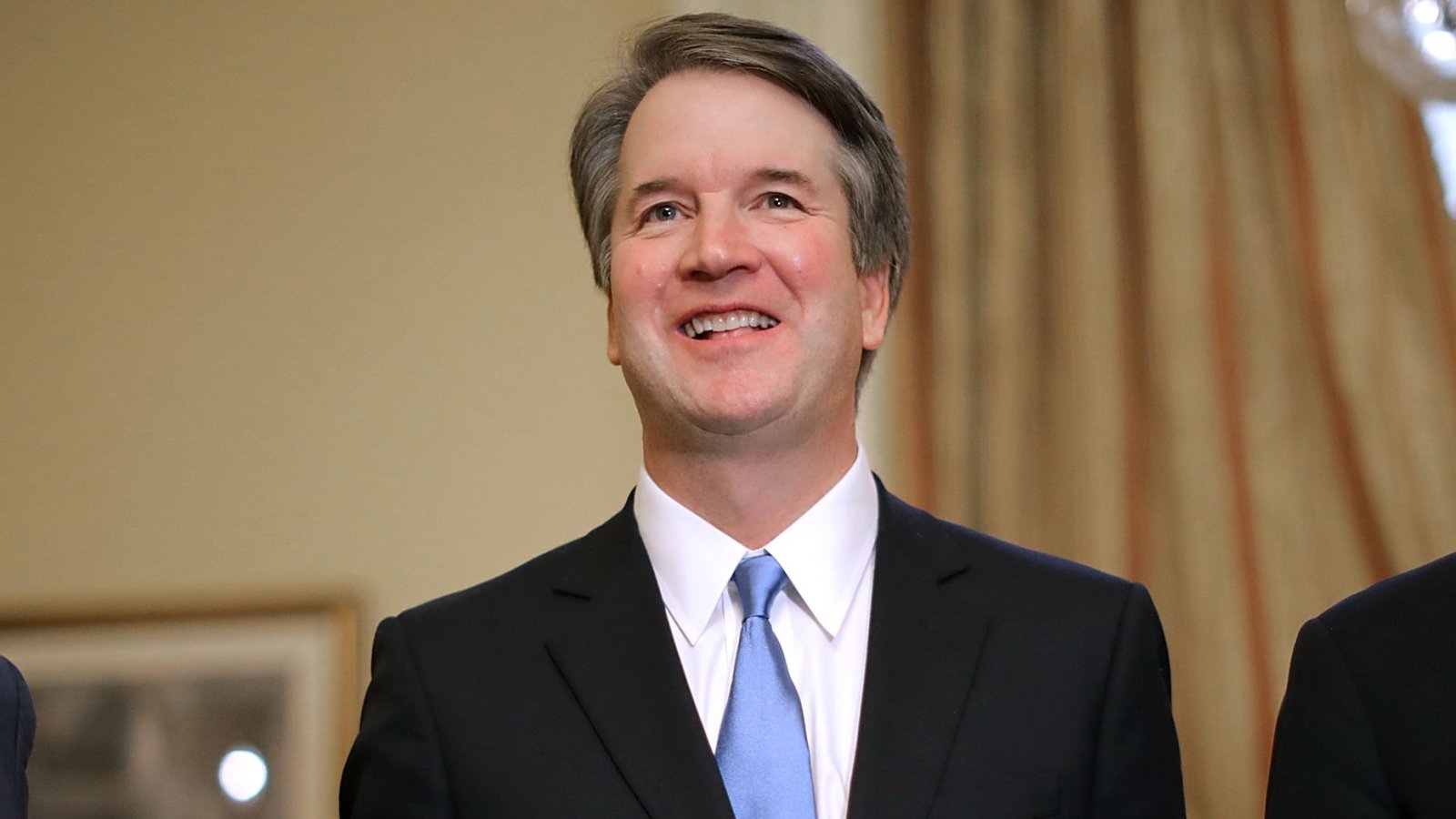
Concord Management and Consulting, one of three Russian entities Special Counsel Robert Mueller indicted for election interference, is using an old Brett Kavanaugh ruling to contest the validity of charges against it.
The 2011 decision by Kavanaugh, writing for a three-judge panel, concerned the role that foreign nationals may play in U.S. elections. It upheld a federal law that said foreigners temporarily in the country may not donate money to candidates, contribute to political parties and groups or spend money advocating for or against candidates. But it did not rule out letting foreigners spend money on independent advocacy campaigns.
Kavanaugh “went out of his way to limit the decision,” said Daniel A. Petalas, a Washington lawyer and former interim general counsel for the Federal Election Commission.
A motion filed by the Russian company this week repeatedly cites Kavanaugh’s decision, bringing new attention to his rulings on campaign finance laws and regulations during his tenure on the U.S. Court of Appeals for the D.C. Circuit.
(...)
In the case of the foreign national decision, Kavanaugh said the government would have to prove that foreign nationals had knowledge of the law’s restrictions before seeking criminal charges. And he said the ban did not include foreign spending on “issue advocacy and speaking out on issues of public policy.”
(...)
The indictment alleged that Concord paid $1.25 million a month to the St. Petersburg-based Internet Research Agency for projects such as setting up rallies for President Trump or various advocacy groups in the United States, creating Twitter and Facebook accounts to spread false information and “to interfere in U.S. political and electoral processes without detection of their Russian affiliation.” The company was charged with one count of conspiracy to defraud the United States.
(...)
In Concord’s motion to dismiss the charge, its attorneys frequently cited Kavanaugh and his 2011 decision in Bluman v. Federal Election Commission .
The lawyers noted that Kavanaugh distinguished between explicitly political ads — those that urge the public to vote for or against a candidate — and so-called issue ads.
“Foreign nationals are not barred from issue advocacy through political speech such as what is described in the indictment — they are only precluded from willfully making expenditures that expressly advocate the election or defeat of a particular candidate,” wrote Washington lawyers Eric A. Dubelier and Katherine J. Seikaly, who are defending the company, citing the Bluman decision.
It is the second issue related to Mueller’s investigation that is sure to receive attention at Kavanaugh’s confirmation hearing. He said in a 2009 law review article that presidents should not be distracted by civil lawsuits and criminal investigations and that Congress might be “wise” to provide such protection until they are no longer in office.
In addition, CNN has found a 20-year-old video of Kavanaugh arguing only Congress should be allowed to investigate the President, which adds to speculation Kavanaugh would shut down the special counsel's Russia investigation should he be confirmed and the matter reach the Supreme Court.
CNN:
"The implication is that Congress has to take responsibility for overseeing the conduct of the president in the first instance," Kavanaugh said at a 1998 event at the Georgetown Law Center in Washington when asked about his view that a sitting president cannot be indicted. "That's the role I believe the Framers envisioned, and that's the role that makes sense if you just look at the last 20 years."
Kavanaugh then added: "It makes no sense at all to have an independent counsel looking at the conduct of the President. Now to be sure, most criminal investigations are going to involve multiple subjects, so we still need a criminal investigation ongoing. But when it comes to looking at the conduct of the President, it has to be the Congress. Congress has to get in this game and not -- stop sitting on the sidelines."
There are distinct differences between a special counsel and an independent counsel -- given that a special counsel like Robert Mueller works directly for the Justice Department under a different set of rules that governed the independent counsel. The law that established the independent counsel expired in 1999, when it was replaced by the more modest Justice Department regulation that governs special counsels.
Kavanaugh's comments from two decades ago came in the context of the work of the independent counsel Ken Starr, for whom he worked from 1994-1998, as they investigated the Clinton White House.
(...)
Democrats have vowed to make Kavanaugh's views of Mueller a focus of the confirmation proceedings, demanding he commit to recuse himself from any matter involving the Mueller probe, a proposition Republicans have dismissed. But at least one key GOP swing vote also wants to know his views on Mueller.
"It's something I'll raise with him," GOP Sen. Susan Collins of Maine, a moderate from Maine, told CNN, noting also there's a difference between a special counsel and independent counsel.
Kavanaugh has made his disdain for special prosecutors well known over the years.
In separate 1998 remarks at the Georgetown University Law Center, Kavanaugh said: "Let the President decide when to appoint a special prosecutor. ... A special prosecutor should be nominated by the President and confirmed by the Senate. Not by an isolated panel of judges. The prosecutor should be removable at will by the President."
Kavanaugh added, "In my view, Congress should clearly establish the President can be indicted only after impeachment by the House and removal by the Senate."
(...)
"The country wants the President to be 'one of us' who bears the same responsibilities of citizenship that all share," Kavanaugh wrote in a 2009 Minnesota Law Review article. "But I believe that the President should be excused from some of the burdens of ordinary citizenship while serving in office."
Kavanaugh said Congress should investigate a president, raising questions about his views on Mueller (CNN)